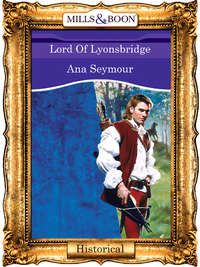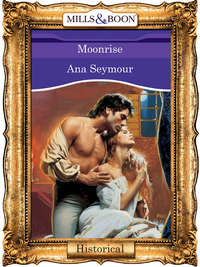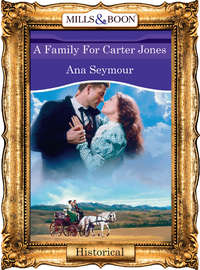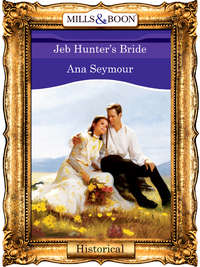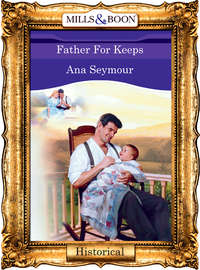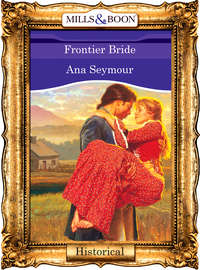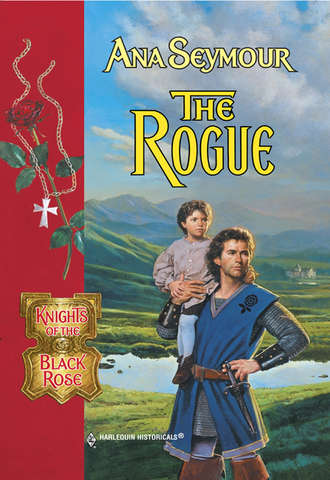
Полная версия
The Rogue
He saw her mother’s first. Laurette, beloved wife. A smooth, unmarked stone stood beside that, no doubt awaiting Phillip’s arrival. It was the kind of gesture he would expect from the man. And beyond the blank stone was the one he’d been seeking. Flora, beloved daughter.
Nicholas walked the edge of the three graves and knelt at the far end. His hand traced the inscription on the stone. Flora. Such a cold, hard memorial for the warm, loving young woman he had known. Over and over he traced it, his eyes closed. He tried to picture her face. It had been alive and vital, he recalled, but the memory was dim. He knew that her eyes had danced when he’d lifted her onto his big horse. She’d loved to ride. Once in the Holy Lands he’d seen a girl on a pony and he’d thought to himself, When I get back to England I’m going to get Flora her own horse, a little mare as sweet and gentle as her owner.
His eyes prickled, then burned under the closed lids. He’d shed no tears for his father, but they came, unbidden, for Flora. Little Flora, whose pretty face he could no longer clearly remember.
He opened his eyes, blinked rapidly and gave an unmanly sniff. His old leg wound was telling him to change from his kneeling position, but he hesitated a moment, feeling as if he should do something more. He should have gathered some spring wildflowers from the meadow before he’d come, he thought. Flora had loved flowers. She’d made him a garland one afternoon and had hung it around his neck, laughingly proclaiming him King of the May.
He took a deep, ragged breath, then, impulsively, pulled the silver chain from around his neck. It held a tiny cross. He’d worn it all through the years abroad and it had come to be a talisman to him. He weighed it in his palm for a moment, then gently tucked it into the mossy grass just at the base of Flora’s tombstone. “Rest in peace, sweet Flora,” he whispered.
His head bowed, he didn’t see the woman coming around the corner of the church, but he heard her gasp plainly.
“What are you doing here?” she asked, her voice shaking.
Nicholas rose awkwardly to his feet, resisting the urge to rub his bad leg. His mental image of the sweet, departed Flora was replaced by the real life vision of her sister, face flushed with anger. “I come on the same mission you do, I’d suppose, mistress. To pay my respects to Flora.”
“’Twas more than you paid to her when she was alive.” Beatrice was carrying the wildflowers he’d neglected to bring. She brushed past him and scattered them equally over her sister’s grave and her mother’s.
Nicholas watched her distribute the flowers, then said, “I’ll not fault you for your words, since you no doubt are grieving your sister sorely. But I’ll tell you again that I never held Flora in disrespect. I was greatly fond of her.”
She dropped the last flower, then straightened up. Their faces were mere inches apart, her eyes glacial. For a long moment neither said a word.
“I’ll not argue the point standing over her grave,” she said finally. “But perhaps you will do me the respect of allowing me to mourn in private.”
Still their gazes held, and Beatrice was certain that Nicholas Hendry had more that he wanted to say to her. But after a moment, he nodded and said only, “As you wish.” Then with one final glance at the carved stone name, he turned and walked away.
She stood for several minutes until he had disappeared behind the church. His appearance there had left her feeling shaky. Could it be true that his eyes had been rimmed with red? she asked herself. It simply did not fit with the picture of Nicholas Hendry she’d been holding all these years to think of him weeping over her sister’s grave.
She gave herself a shake and sank to her knees beside the grave. Then she cocked her head as she noticed something glinting near Flora’s tombstone. Picking the object from the ground, she looked at it. It was a silver cross, suspended from a chain. Beatrice’s eyes widened. On her visit to Hendry Hall the previous day, she’d seen this very cross hanging from Nicholas Hendry’s neck.
She sat back, stunned. Could this be the callous knight she had pictured—this man who wept at his former lover’s grave and left his necklace as tribute?
Tears welled in her eyes. “Ah, Flora,” she said in a low voice. “Do you know that your knight has returned from the Crusades at last? Did you see him here, little sister? He’s left you a holy cross.”
She leaned over and pressed her warm cheek to the cool, mossy ground. “Help me not to hate him, Flora. Help me to understand why Nicholas Hendry came back from the dead and you never shall.”
Then she lay against the softly mounded grass and wept.
Owen was playing in his special cave. Phillip had made it from an old ale barrel that he had cut so that it rested on its side and made a perfect hiding place for a three-year old. Beatrice kept one eye on the child while she carefully poured hot tallow into the candle molds.
There were no customers in the inn that afternoon, which was not an unusual occurrence, and she’d sent the barmaid Gertie home early.
“He killed your daughter, and yet you defend him,” she said to her father, who watched her from his bench on the other side of the fire.
“I’m not defending him, lass, but neither did he kill Flora.” He looked over at the barrel where two protruding shoes were the only evidence of the child inside. Lowering his voice, he continued, “’Twas the childbirth that killed her, just as it did your mother. Both were too frail for birthing.”
“Flora would never have been birthing if it hadn’t been for Nicholas Hendry.”
“And your mother would not have given birth if it hadn’t been for me. Does that make me a murderer, too?”
His voice cracked with long held pain, and Beatrice felt a stab of remorse. Setting aside the mold, she crossed over to her father and dropped to her knees beside him, and put her arms around his shoulders. “Forgive me, Father. Let’s not speak any more of Nicholas Hendry. I’d be happy never to hear the man’s name again.”
“Now, that’s not likely. He’s our landlord and our neighbor.” Phillip pulled out of his daughter’s embrace and turned to her, his aging eyes watery. “This bitterness will solve nothing, Beady. What’s more, resentment works like a wicked little worm inside a person, gnawing away until you’re left with a rotted hole where your heart should be.”
A ghost of a smile crossed her lips at his use of her old childhood nickname. “’Twas my mother first gave me that name, was it not?” she asked.
Phillip smiled and stroked the hair back from her forehead. “Aye, our little Beady. What I wouldn’t give to have her see you now, a woman grown, proud and beautiful.”
His hand shook as he withdrew it from her hair. The palsy grew worse with each passing week, Beatrice noted with the familiar mix of sadness and fear. What would she and Owen do when her father was no longer around?
She gave him another squeeze, then got to her feet as the barrel across the room began rocking furiously back and forth. A small head poked out the entrance.
“Bear!” the child proclaimed, his dark eyes dancing.
Beatrice walked over to the contraption and hunched down at the mouth. “Did a bear come into your cave, Owen?” she asked.
Owen nodded, giggling.
“A big one?”
“Aye, fearsome big.” Bears had been Owen’s number one preoccupation since his grandfather and aunt had taken him to see one dance at the May Day fair. It had been a motheaten, sorry creature who could barely lift itself onto its hind legs, much less dance or look fierce, but to the child it had been a wonder.
“Did you wrestle with it?” Beatrice asked.
“Aye. It runned away.”
Both Beatrice and Owen turned their head toward the door as if following the departure of the imaginary beast. “I’m glad to hear it,” she said. “Bears aren’t allowed in the inn. Mayhap you’d like some porridge after such a fierce battle.”
Owen stuck his feet up in the air against the rim of the barrel and somersaulted backward, landing in Beatrice’s lap. “With a sweetcake?” His dark eyes pleaded with her from his upside down position.
She pulled him upright and hugged him. “Aye, with a sweetcake, if you finish your porridge. Warriors who want to fight bears need a lot of good food.”
He followed along beside her happily to one of the long tap room trestle tables. His hair was tangled from the tussle with the bear and she unconsciously combed it into place with her fingers. If she could help it, Flora’s child would never have to face any more adversity than an imaginary bear.
Out of the corner of her eye, she watched her father lift himself from his bench, trying to disguise what an effort it cost him.
They sat around the table and Owen lisped the quick prayer she had taught him, “God bless Mama Flora.” It came out as one word, “Gobblesmaflor.” Undoubtedly it meant little to the child, but Beatrice found the ritual comforting.
Phillip reached across the table and put his hand on his daughter’s. “I’ve not a doubt that our blessed Flora has found peace in another world, daughter. Would that her sister could find a measure of it in this one.”
Beatrice pulled her hand gently away from her father’s grasp and began ladling the bowls of porridge.
The rumor mill had it that a century before in Normandy, the Hawses had been mere peasants who had made their way up into the ranks of first a knight’s army and then a duke’s by their strength in combat. In any event, it was certain that the present Baron Hawse’s father had been made baron and granted title to considerable lands after returning from the ill-fated Third Crusade in which King Richard had ended up an ignominious prisoner. The senior Hawse had thrown his fortunes to the king’s brother, John, at precisely the correct moment and had then further ingratiated himself with the new king supporting him when most of the nobles of the land rebelled.
Gilbert, the present Baron Hawse, did not suffer close inquiries into the Hawse lineage. His power in the shire was nearly absolute. The Hendry lands and the small village of Hendry, which his estate encircled, were the only interruptions in his dominion. Now that wrinkle had been solved with his acquisition of the lands through Arthur Hendry’s deathbed grant, though he’d carefully refrained from pressing the claim while Constance Hendry was still in mourning. Sooner or later he intended to have Hendry’s wife, as well as his lands, but the baron was exercising uncharacteristic patience where Constance Hendry was concerned.
Nicholas had visited Hawse Castle a number of times in his youth, but the sight of it never failed to impress him. Built like a fortress, though the days of Norman-Saxon conflict were long over, the towering stone structure was surrounded by a stone wall with battlements on all sides.
As he and his mother rode through the raised portcullis into the bailey, he almost felt as if he should have come garbed in the chain mail armor that had become like a second skin during his years on the Crusades.
The baron, however, was anything but warlike as he strode across the courtyard to greet them, smiling broadly.
“Welcome to Hawse, my friends,” he called. A woman trailed behind him, unable to keep up with his pace. He looked back over his shoulder at her and barked, “Come along, Winifred.”
Winifred was the baron’s only child, a slender young woman who looked to Nicholas as frail as her father looked robust. He remembered her only vaguely, but was surprised to see her there. She was a few years older than Nicholas himself, and by now he would have thought that she’d be married and off running a castle of her own somewhere.
“I bid you welcome,” she said, her voice so soft he could scarcely hear the words. Her eyes were on Constance and only darted nervously to Nicholas for a moment.
Nicholas had always had a natural affinity for putting even the shyest of women at ease. He took her cold hand and raised it toward his lips. “It’s good to see you again, Winifred,” he said gently. “You’ve grown into a beauty in my absence.”
Winifred blushed with pleasure and let her eyes meet Nicholas’s at last. Baron Hawse beamed at the two younger people and took Constance’s arm. “Let’s be out of this wind,” he said. “The table is ready with Hawse Castle’s finest fare for our honored guests. Winifred has seen to it.”
“’Twas kind of you,” Nicholas murmured. He gazed down at her with the seductive smile he had always reserved for females of a proper age to be bedded, and he received the usual response. Her eyes softened, her lips fell open slightly.
Nicholas shook himself. His actions came as natural to him as breathing, but he’d best be wary. Winifred Hawse was not a barmaid, and he had no intention of bedding her. Indeed, if he was to become the reformed man he’d sworn to become on the field of battle, he’d do well to save his smiles for grandmothers and holy sisters.
His concern at the moment was resolving the tangle over the Hendry estates. He’d banish all thoughts of women from his mind until the matter was settled. Unbidden, he had a sudden vision of Beatrice Thibault, as she’d looked just inches away from him at the cemetery.
“I may still call you that?”
Nicholas looked down, startled by Winifred’s soft voice.
“I beg your pardon,” he said.
“I may still call you Nick, as I did when we were young?” she repeated.
He had no recollection of Winifred Hawse calling him anything at all, but he smiled at her and said, “I’d be injured if you didn’t.”
He offered his arm to her as they turned to follow his mother and her father across the yard and into the castle keep.
“I’m only saying that you should consider the baron’s suggestion,” Constance told her son gently. Nicholas sprawled at the foot of his mother’s pallet, as had been his custom when he was young. She sat up against the cushions, a shawl wrapped around her against the morning cold. “Winifred is a lovely girl.”
Nicholas sighed. “Aye, Mother. But I’m not interested in taking a wife. I’ve barely returned home. I just want to settle this matter and take my rightful place as master of Hendry.” He sat up to throw another blanket over his mother, who had begun to shiver. “We need to build fireplaces in these chambers.”
Constance smiled. “You’ve inherited that trait from your father, at least. He was always wanting to make some change or other to this place.”
“Little good it will do me to inherit his character traits if I’m not to inherit his estate,” Nicholas grumbled.
“It’s more than generous of Baron Hawse to make this offer, Nicholas. You will not find a better match than Winifred in all England. Some day you could inherit all the Hawse lands.”
“The baron is still virile enough to remarry and father a son,” Nicholas observed, watching his mother carefully.
His remark elicited no reaction. “Aye,” she replied evenly. “But he has remained unwed these many years since his wife’s death. Another heir does not seem to be a matter of high importance to him.”
Nicholas could not say why the idea of taking Winifred Hawse to wife seemed so wrong. She was not unpleasant to look upon. Her demeanor was graceful and ladylike. She was, as his mother pointed out, heiress to a considerable fortune. But somehow the idea of marrying her seemed impossible. For one thing, she was so fragile, he couldn’t imagine sharing with her the lusty games he’d played with his former partners such as the curvaceous Mollie.
“I’m not ready to marry, Mother. And I shouldn’t have to marry in order to inherit what is rightfully mine.”
Constance swung her feet to the stone floor. “Take some time to think about it, my son. You’ve just arrived home and all of this has come at you too quickly. We’ll invite the baron and his daughter to a dinner here next sennight and see how you’re feeling then. Now run along and send my maid to help me dress.”
She stood and crossed the room toward the private garderobe, another of his father’s improvements. Nicholas uncurled himself from the bed and left the room to go find her handmaid.
The red-haired servant was in the scullery with two other young girls of the manor. They stopped their chatter when Nicholas entered the room, but all three looked him over from head to toe, their blushing faces glowing with eager smiles. Nicholas had a moment of longing for his earlier, heedless days when he would have taken full advantage of the girls’ shameless admiration.
“Good morrow, ladies,” he said with a slight bow. “I’d thought the sun was the brightest thing about this morn until I saw your smiles.”
They giggled and one of the girls, whose name he didn’t know, ventured a sally in reply. Then he told his mother’s maid that her service was needed and bid them good day.
Their laughter floated with him as he made his way out to the courtyard, but it did not make him want to turn back and choose one on which to work his wiles. To his surprise, he realized that all his protestations that he was a changed man were very much the truth. He was changed. He wanted something more in life than a quick romp in the hayrack with one of the scullery maids.
He wasn’t sure exactly what that something was. But, by the rood, he was certain that it was not marriage to Baron Hawse’s only daughter.
Chapter Four
At the risk of encountering former lovers who might not be as forgiving of past transgressions as Mollie, Nicholas vowed to spend the next few days getting reacquainted with both the Hendry lands and the people he still thought of as his tenants. He put Baron Hawse’s offer of marriage to Winifred out of his mind and asked his mother not to bring the matter up again until the Hawse’s scheduled dinner the following week.
Spring was blossoming in earnest, and riding in the rolling countryside around Hendry Hall lifted Nicholas’s spirits. His big destrier, glad to be roaming free after the difficult journey, pranced along like a frisky colt. He’d purchased the bay stallion in the Holy Lands when his own had been killed by an Arab’s lance.
Nicholas laughed out loud and bent over the animal’s neck. “Aye, Scarab, ’tis easier without three stone’s weight of armor and bloody heathens running at you like crazed devils, is it not?”
As if in reply, the horse settled into a long, smooth gallop. Nicholas threw back his head. The sun on his face and the wind in his hair made him feel truly at ease for the first time since he’d returned to England.
He pulled Scarab up as he reached the top of the hill that looked down upon Hendry. The Gilded Boar Inn stood slightly apart from the village, out on the main highway that led back to Durleigh. Nicholas’s good humor faded as he surveyed the modest inn. With a sigh he reined his mount to the north to skirt around it. Much as he’d like to see Phillip Thibault, Flora’s sister had asked him to honor their grief and stay away. He felt duty-bound to comply with her wishes, at least for the time being.
Eventually, when he’d reestablished himself at Hendry and the ownership of the estate was no longer in dispute, he’d seek Phillip out in private. He’d always liked the old man, and he felt the need to assure him that, in spite of Beatrice’s bitter accusations, he had never meant to do Flora any harm.
He steered a path straight into the village itself, heading for the third in the row of humble wooden homes. Here, at least, he would be assured of a welcome. Growing up he’d spent as much time in the Fletchers’ humble cottage as he had at Hendry Hall. More than once a manservant from the hall had to be sent to fetch him when he’d stayed on too many hours and his mother had grown worried.
The Fletcher household had always seemed much happier than his own. Ranulf the Fletcher and his wife, Enid, had raised a brood of seven children. Harold, the middle boy, had been exactly Nicholas’s age, and the two had been as close as brothers. When Ranulf had died the year Harold and Nicholas turned sixteen, Harold had taken over his father’s trade. By then Nicholas had been sent to squire at Durleigh Castle, and the difference in station had begun to put distance between the two friends, but the bond had never been entirely broken.
Harold had a workshop at one side of the cottage, and if the gray smoke billowing out from the three-sided structure was any indication, he was hard at his task.
Nicholas walked his horse around to the open side of the workshop. Harold was bent over a workbench with feathers scattered everywhere. Nicholas pulled Scarab to a halt and sat watching his old friend. Harold looked much the same as when the two lads had first begun to vie over which village lass they would next woo. But Nicholas’s mother had told him that Harold now had a wife and son of his own. It was hard to credit.
As if aware that he was being studied, Harold looked up suddenly. He squinted out into the sunlight, then let the arrow in his hand clatter to the ground, swung his leg over the bench and started toward Nicholas.
“I’d heard ye was back, Nicky!” he called. “Back from the dead, they say, but I told them all along that no bloody heathen arrow was going to put an end to Nicholas Hendry.”
Nicholas slid off his horse and met Harold halfway. With a slight moment of hesitation, Harold stopped in front of him and extended his hand. Nicholas ignored the gesture and, instead, engulfed his friend in a great bear hug, which Harold willingly returned.
“Aye, but ’tis good to see you, Harry,” Nicholas said with a broad smile.
Harold leaned back and gave his friend a critical look from head to toe. “They’ve left you none the worse, I trow.” He knocked his fist into Nicholas’s upper arm. “Ye’ve grown more solid, if anything. Might even be able to take me in a fall or two.”
“I’ve always been able to take you in a fall or two, you scrawny lout.”
The two old friends grinned at each other, for a moment lost back in their youth, ignoring the different paths their lives had taken.
Harold playfully gave a sideways kick to Nicholas’s leg in an old wrestling move, but dropped his grin when Nicholas’s bad leg buckled beneath him. “Forgive me—” he began.
Nicholas shook his head and tried to keep from wincing. “Nay, ’tis nothing. They whittled at me a bit,” he added, rubbing his thigh.
Harold frowned. “Arrow?”
Nicholas shook his head. “Lance.”
Harold gave a low whistle. “Then ’tis somewhat of a miracle after all that ye came back to us. Mayhap me mum was right to say prayers for ye.”
“Enid? How is she?”
“Salty and ornery and fit as a woman half her age.”
Nicholas laughed. “I’m glad to hear it. And what’s this about a new young fletcher in the village? Taking your trade yet, is he?”
To Nicholas’s amazement, his friend’s face flushed with pride. “My boy, Nick. Ah, he’s a scrappy youngster, he is. Who’d have thought ’twould be such a marvelous thing to have a son?”
“What do you call him?”
Harold hesitated a moment, then answered, “He’s named after my best friend, who I thought never to see again this side of heaven or hell.”
Nicholas swallowed and, for the second time in a week, felt tears sting the back of his eyes. For a long moment, he made no reply, then he clapped Harold on the back and said, “Well, then, take me to see the boy. He must be a scrappy lad indeed with such a name.”
“Mayhap they’ll not come into the cottage,” Jannet Fletcher said, giving Beatrice a little pat of reassurance.
The two women had heard a rider approaching and, spying through the cracks in the shutters, had seen the greeting between the two men. “I warrant they will,” Beatrice argued. “Harold will want to show off his household.”
Jannet stepped back from the window and took a quick look around the simple cottage, suddenly aware that her housekeeping was about to be under examination. She retrieved a pair of leggings that had been left by the fireplace to dry. “Well, the boys are off with Enid, so you don’t have to worry about him seeing Owen.”


